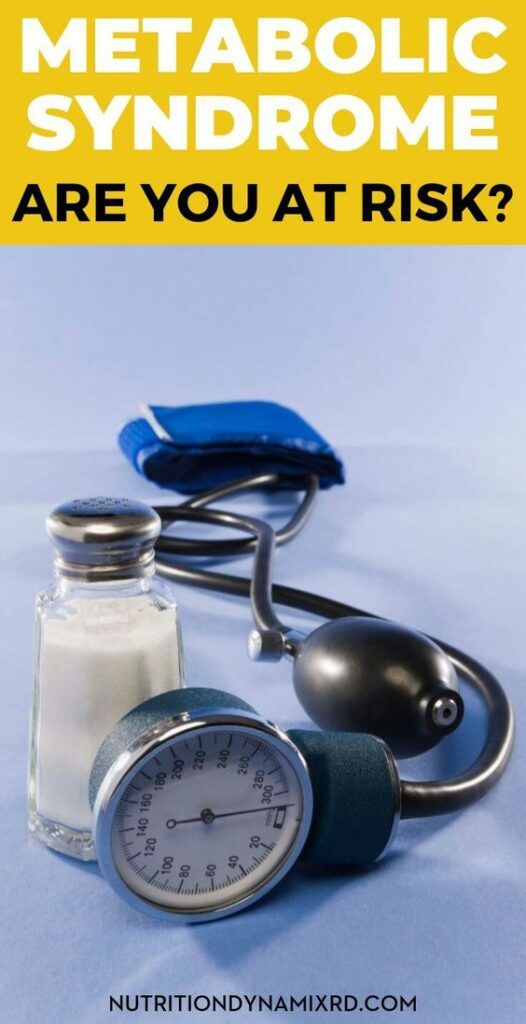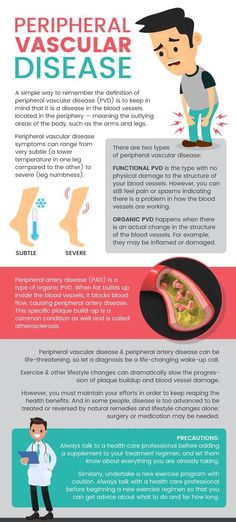Metabolic syndrome – ever heard of it? It only came on the scene in 1998 but 47 million US citizens have it. If you want to know more about it, this article contains the facts about metabolic syndrome.
What is Metabolic Syndrome
Believe it or not metabolic syndrome, also known as syndrome X is not a disease. It is a group of risk factors that increase the likelihood of developing heart disease, diabetes, and stroke. Because of this, it is debated  by the medical experts because not all doctors agree that metabolic syndrome should be viewed as a distinct condition.
by the medical experts because not all doctors agree that metabolic syndrome should be viewed as a distinct condition.
The American Heart Association (AHA) concludes that 23 percent of adults in the US currently have metabolic syndrome.
What is the cause of Metabolic Syndrome
Experts aren’t sure why metabolic syndrome develops. Metabolic syndrome is caused by a group of five risk factors that increase the likelihood of developing heart disease, diabetes, and stroke.
The five (5) risk factors are:
- high blood sugar levels (insulin resistance)
- increased blood pressure (greater than 130/85 mmHg)
- excess fat around the waist
- low levels of good cholesterol, or HDL

- high triglyceride levels
It is important to note that having one of these risk factors does not indicate having metabolic syndrome. However, having one will increase chances of developing cardiovascular disease. Having three or more will result in a diagnosis of metabolic syndrome and it will increase the risk of health problems.
There are underlying conditions that lead to the above risk factors that are detailed below.
- Insulin resistance. Insulin is a hormone that helps the body use glucose — a simple sugar made from the food we eat — as energy. In people with insulin resistance, the insulin doesn’t work as well; as a result the body keeps making more and more of it to cope with the rising level of glucose. Eventually, this can lead to diabetes. Insulin resistance is closely connected to having excess weight within the belly.
- Obesity –– especially abdominal obesity. The experts say that metabolic syndrome is becoming more frequent because of the increasing obesity rates. Additionally, having extra fat in the belly — as opposed to elsewhere in the body — seems to increase the risk. For more on obesity, read the article: All About Obesity
- Harmful lifestyle. Eating a diet high in unhealthy processed foods and not getting enough physical activity can be a contributing factor.
- Hormonal imbalance. Hormones may also play a role. For example, polycystic ovary syndrome (PCOS) — a condition that affects fertility — is related to hormonal imbalance and metabolic syndrome.
- Smoking. Smoking causes a plethora of health issues and metabolic syndrome is on the list as well.
There are other risk factors that can increase the risk of metabolic syndrome: age, family history of metabolic syndrome.
Additionally, the syndrome tends to run in families and is more frequent among African-Americans, Hispanics, Asians, and Native Americans.
The complications of Metabolic Syndrome
The problems that can result from metabolic syndrome are commonly serious and long-term (chronic). They include:
- hardening of the arteries (atherosclerosis)

- cardiovascular disease
- stroke
- heart attack
- peripheral artery disease
- diabetes
- kidney disease
- nonalcoholic fatty liver disease
Should diabetes develop, an individual may be at risk for additional health complications, including:
- kidney disease
- nerve damage (neuropathy)
- eye damage (retinopathy)
- amputation of limbs
How is Metabolic Syndrome determined
To identify metabolic syndrome, a physician will need to perform several different tests. The results of these tests will be used to look for three (3) or more signs of the disorder. The doctor may check one or more of the following:
- blood pressure
- fasting blood triglycerides
- cholesterol levels
- fasting glucose level
- waist perimeter
Irregularities recorded on three or more of these tests will point toward the presence of metabolic syndrome.
Treatment of Metabolic Syndrome
The good news is that metabolic syndrome is controlled, largely with

changes to your lifestyle.
In most cases, the best treatment for metabolic syndrome rests with the individual. Changes to their behavior — such as healthier eating and getting further exercise — are the first things a physician will suggest. By adopting some healthier habits, one may be able to eliminate their risk factors completely.
In summary:
- Exercise. Start slowly.
- Eat a healthier diet with plenty of fruits and vegetables, lean protein, whole grains, and low fat dairy, and go light on the saturated fats, trans fat, cholesterol, and salt.
- If you smoke, quit smoking – NOW!
- If you’re overweight, lose it.
- Schedule regular checkups with your doctor.
The overall perspective for people with metabolic syndrome can be quite good if symptoms are managed. Individuals who take their doctor’s advice, eat right, exercise, stop smoking, and lose weight will reduce their chances of developing serious health problems such as a heart attack or stroke.
Although symptom management can reduce health complications, most people with this condition have a long-term risk of cardiovascular disease. If you develop this condition, you’ll be required to be monitored by your doctor to assist preventing serious health problems like heart failure and stroke.
Bottom line: If you’ve just been diagnosed with metabolic syndrome, you might be anxious. But think of it as a wake-up call. That means it’s time to get serious about improving your health. Making straightforward changes to your lifestyle now can prevent severe illness in the future.
We need to take a different approach to our health overall. Conditions such as this can be prevented for the most part of we take a proactive approach to our healthcare rather than a reactive approach. Common place is for us to address a health issue after it has occurred rather than to head it off in the first place. Some of us take better care of our cars than our bodies. It isn’t just how long we live, but how well.
Prevention is always better than cure!
Questions, comments and concerns are welcomed below.
Good Health!!
Thank you for your post and teaching people about prevention. I have PCOS, but unfortunately for me, I went undiagnosed for many years because typically, having PCOS means being overweight. I have been doing a lot of research to understand my own health condition, and it seems that I am a ‘lean’ PCOS patient probably because of my healthy life style. I still need to have more tests done because I am still most likely insulin resistant.
Knowledge is power so keep it up!
Hi Cynthia – Kudos to you for researching your condition. It is an important undertaking especially with a condition like PCOS that is severily under diagnosed. More of us should take more responsibility for our health. Best of luck to you with your condition and thanks for commenting.
Hi, Thank you so very much for your article on; The facts about Metabolic Syndrome. It is a very amazing article, and I have learned through your article how to recognize this syndrome and the fact that it increases the risk of developing heart diseases, cancer stroke, etc. I have to teach many who are still ignorant of these facts. Thanks.
Hi Martha – I happy that you found the article to be helpful. Yes, we must learn and educate others about being proactive with their health. Thanks for commenting.
Awesome , i think many needs to see this, most people have this metabolic syndrome but are not fully aware, the causes, complications and treatment while some are misinformed about it, being diagnosed with metabolic syndrome is not totally death and as you said think of it as a wake up call, and the best treatment rest with the individual, though it is not easy to start up a new routine like exercising daily and eating healthier meals and avoiding junks but one can start slowly..Thanks for creating this awareness.
Hi Alexy – Yes lifestyle changes can be challenging but we have to keep our eyes on the prize; to look and feel good…for a long time. We all are going to die but why spend our time on earth with a long term illness if it can be avoided? Thanks for commenting
Hello there! This is an amazing article you’ve got here, it’s highly informative. I’ve known some of this risk factors before now but I never knew it is called metabolic syndrome.
However, I will discuss this post with my mum especially about the excess fat in her waist region as it’s detrimental to her health.
Thanks for sharing this, it’s helpful for me!
Hey Wilson – I’m happy to know that the article was helpful to you. All the best to your mum and thanks for commenting.
A lot of people, after seeing themselves getting portly around the waist often self-diagnose, saying they are suffering from metabolic syndrome. However, this is most times untrue. In itself, it isn’t a disease but it could escalate those in one’s body. Exercising regularly can help fight it while you also keep your diet in check.
For sure exercise and a healthy diet will go a long way in the defense against major health issues. Thanks for commenting.
There are some peopl who do not pay attention to their health. there is a saying that we are what we eat and the food we take into our body system goes a long way to determine our health status. the ways to treat metabolic syndrome are not much. it can be widely controlled though. thank you for this post
Yes, you’re correct Kirkman – as with most in life, you get out what you put in! Thanks for commenting!
Good post here about metabolic syndrome and I must say that I really fancy this information. On countless occasions, I have seen misrepresentation of information about this syndrome x. Well, it is better to prevent it or get a means of curing it fastly because of the risk factors associated with it if not taken with utmost concern. Thanks for providing the information here.
You’re welcome Ella – and I agree: prevention is better than cure! Thanks for commenting!
I know I have excess fat around the waist and so I am worried about this. Well I haven’t checked my blood pressure, blood sugar levels, or cholesterol in a long time, but I feel like it’s possible for me to have at least one of those due to my current diet which is very high in red meat and dairy products. I do plan on eating more plants and going outside for a 30 minute exercise run every day. Once I lost the weight I feel like I won’t worry as much about strokes and heart attacks.
Before you begin your exercise run, it’s advisable to get checked out first with your doctor and that includes full blood work. You need to know what’s going on with your body. Once you get that taken care of and you have the doctor’s blessing. Get to it..and stick with it! Thanks for commenting.
I am so glad I am seeing this post, health is indeed wealth so it’s important we are conscious of our welfare. Thanks for sharing this post to the members of the public it will really help a lot of people out there. This post has actually succeeded in awakening my exercise spirit which I stopped but will continue knowing it’s very important to our well being. And also learn to eat a more healthier diet with plenty of fruits and vegetables e.t.c My dad really loves smoking so I will try and make sure I recommend this post to him he’ll see reasons to stop smoking.
Hi Sheddy – I am glad to know that you’re going to start exercising again. It is important as well as the diet. I hope your dad stops smoking as it is really a serious health hazard; especially with COVID 19 floating around. Thanks for commenting.
Honestly, before reading your article, i was with the opinion that metabolic syndrome was a disease. at least that was the impression that was left on me. it is releifing to know that it is not a disease and that there are ways to managing it. thank you very much for this awesome article. it is of great help to me
Hi Smoochi – I am glad the article has helped you so much! Thanks for commenting!
This is a good article. Thank you. I vaguely remember hearing the term Metabolic Syndrome. This article has helped me to understand what it is and watch out for the risk factors. The doctor mentioned belly fat as a risk factor. That is one of the hardest things to get rid of. Regular exercise just doesn’t work. You are right being healthy or getting healthy requires a lifestyle change. It’s not just eating healthy. It’s not just exercising. It’s not just reducing stress. It is all of the above. It’s making a conscious effort to live well not just get well. We all slack off at times, but keep trying. It’s your life and no one can live it for you. Advice is great but at the end of the day, we have to make the decision to change for ourselves.
You’re right LanaC – we must be proactive with our health, but at the end of the day it’s up to us. Thanks for commenting.